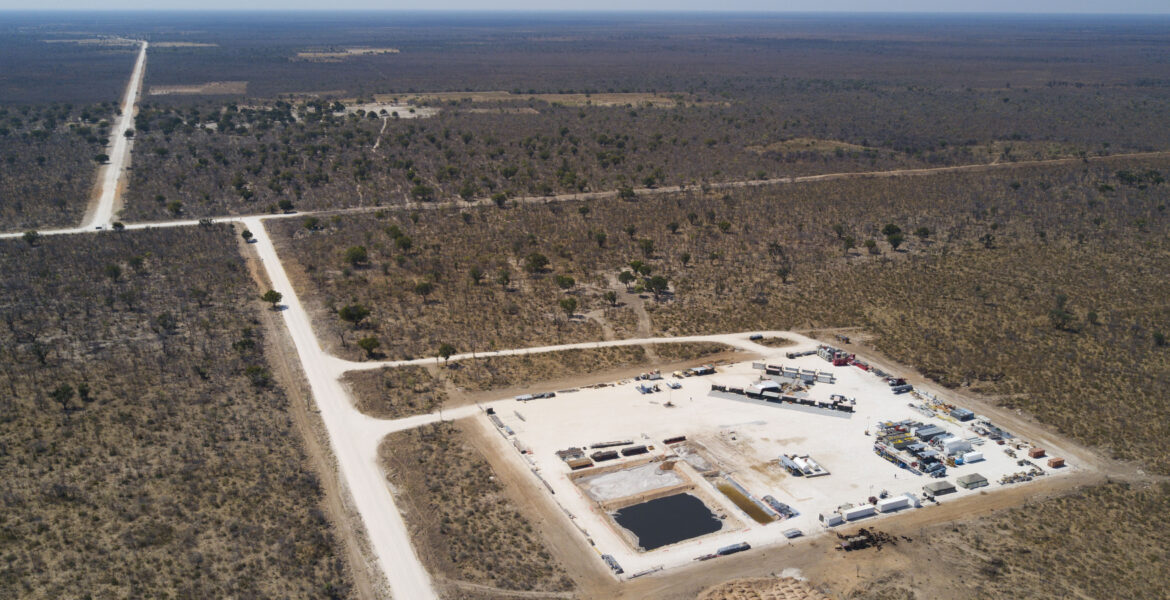As reports emerge from Namibia highlighting the social and environmental malpractices of Canadian oil drilling company Reconnaissance Energy Africa (ReconAfrica) in the Kavango regions, we are reminded that the same company is currently setting up shop in Botswana. Considering their detrimental impacts in Namibia and circumvention of national laws and regulations, as a country we should reassess why this company is being given permission to operate freely here.
Across our border in Namibia, a series of reports in National Geographic and The Namibian newspaper show that ReconAfrica has already started drilling in sensitive areas, such as the Kapinga Kamwalye Conservancy. Photos from that area show large tracts of teak trees being felled to accommodate seismic trucks and open waste pits filled with potential pollutants from test drilling. Local communities and rights groups are incensed, and protesters in Namibia have marched in Windhoek with increasing anger as they demand an end to ReconAfrica’s operation. Namibia’s Parliament has also started looking into the company along with securities regulators in the US.
Scientists like Dr. Surina Esterhuyse from the University of the Free State believe that if the company starts to extract oil from the Kavango region, the environmental fallout could be catastrophic for us downstream. According to local sources, ReconAfrica is discreetly moving into Botswana, soliciting environmental permits, and according to one source – exploring environmentally sensitive zones outside of their permitted lease area including an unsolicited planned company visit to Chief’s Island by company CEOs which was later scrapped.
The company tells us they mean no harm, and that economic prosperity will follow once oil reserves are identified and exploited. However, these sorts of promises have not been fulfilled in Nigeria, Angola, Mozambique, the DRC, and Ghana, despite being made by some of the biggest oil companies in the world which are subject to more oversight.
In Africa oil is a curse, and rather than ReconAfrica’s promise of increased economic revenues, our neighbor’s experiences show that the likely outcome is environmental degradation accompanied by the repression of local communities.
Canadian oil companies are not known for their philanthropy, rather they are associated with a brutal brand of neocolonialism. According to a local NGO in Colombia, Canadian oil companies operating in the Amazon basin have been accused of paying paramilitary groups to intimidate and even kill indigenous community members who speak out against their operations. Last week in Ghana, a Canadian extractive company was responsible for the deaths of 13 locals when a truck carrying explosives flattened a community. No official apology was offered.
As our tourism sector only now begins to show the first signs of recovery after having been ravaged by the COVID-19 pandemic, why should we invite boycotting and condemnation from international travelers by allowing an oil company into our country to plunder our resources while we gain nothing in return?
Bagaetsho, are we really this naïve? Are our doors so readily open for this kind of short-term exploitation? Surely the Okavango Delta and its ecosystems are national assets worthy of defense. As a country we depend on tourism revenues from the Delta, and almost 200,000 Batswana depend on the Okavango ecosystem to directly support their livelihoods.
There are numerous challenges already faced in the Okavango. These include climate change and upstream water abstraction and pollution in Angola and Namibia – the result of increased development and agricultural expansion. These challenges are complex and involve trans-frontier agreements and diplomacy to create a marriage between increasing the livelihoods of impoverished communities and retaining the ecosystems upon which they depend.
Oil drilling in the Okavango region, on the other hand, is not a complex challenge. It is a challenge brought to us by the greed of a Western oil company. It is a challenge easily solved by ejecting this company forthwith. We have little to gain and so much to lose.
Our government knows some of the dangers these neocolonialists pose. Last year the Honorable Minister of Mines Lefoko Moagi stated that fracking will never be allowed in our country. Why then permit groups such as ReconAfrica to explore when geologists claim that in the unlikely event that oil is found, the environmentally catastrophic fracking process would be the only way to extract these potential reserves? By allowing this company to conduct exploratory activities, we open our doors for future exploitation and send an international invitation that our natural resources are open for plundering.
It is time that we lobby our government and request that oil drilling in the Okavango watershed will not be accepted. Imagine the impression Botswana will make, on our neighbors and the rest of the world, should our government stand up and eject a company like ReconAfrica in favour of sustainable development. This would cement our position as a shining light on the global conservation stage as well a champion for social justice and community upliftment.
SOUL (Saving the Okavango’s Unique Life – www.savetheokavango.com)




